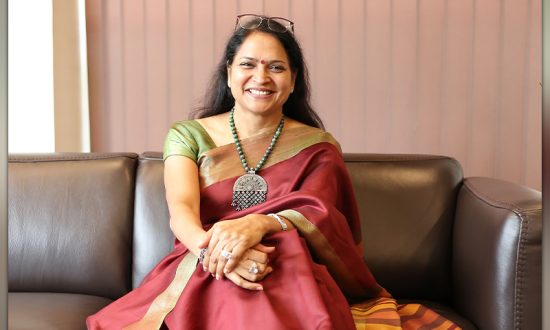‘Education is the most powerful weapon which you can use to change the world’ This quote by Nelson Mandela is what Mrs. Rashmi Mittal believes in and follows religiously. Mrs. Rashmi is the Pro-Chancellor at Lovely Professional University, one of the leading educational institutes recognized globally for its innovative, collaborative, and consistent transformative approach. She is a woman of substance and has played a pivotal role in ensuring LPU climbs the ladder of success. She spearheads the university affairs and it is due to her efforts that LPU is counted as one of the disciplined institutes offering a friendly environment for both students as well as the faculty. Mrs. Rashmi has been associated with Lovely Professional University since 2006. Ever since then, she has been the backbone of the university and has been actively involved in the major decision-making processes. She has fulfilled all her responsibilities with élan and composure. It is due to her leadership that LPU has become an entity known for its unique value system that not only propagates harmony, but also respect for each other’s culture, diversity, and sensitivity towards each other’s problems.
Education is a lifelong process that is vital to India’s economic and social progress. Women and men continue to face gender stereotypes and prejudice from preschool to adult education, which can have a significant impact on their educational choices and career paths. Teachers play an important role in promoting gender equity in schools/colleges/universities. Gender equality in and through education necessitates the creation of egalitarian institutions that provide policies, budgets, and plans that allow everyone to succeed, regardless of whether they were born male or female. This necessitates a focus on the institutional arrangements, management structures, social norms, relational dynamics, and political economy challenges that influence education, as well as tackling gender-related disadvantages that result in differing outcomes for girls and boys, women and men.
Gender inequality is a factor why school dropout rates increase, particularly among girls in many nations and boys in others. Education exclusion is created when gender overlaps with other disparities such as race, ethnicity, class, disability, and geography. Inequalities can also be found in aspects of the educational system that are less visible: curriculum, learning materials, teaching pedagogy, teacher education, management, administration, assessment, and monitoring and evaluation processes are all examples of hidden gender bias in the educational system. Unless there are opportunities for critical review and reflection, prejudice and discrimination can become routine every day approaches. To modify these processes and ensure that the education system supports gender-equitable experiences for all, both in and out of school, targeted policies, practices, and research are required.
These are various steps that institutes can take to ensure gender neutrality:
- By sensitizing teachers and students about the importance of gender equality.
- Centers should be made inside the campus that can keep a vigil on the gender violations happening in educational institutes.
- Management should make sure that students are being treated fairly in the classroom where they feel equally about taking part in any conversation.
- Syllabus should be made inclusive, that can promote gender equality.
- Scholarships should be created for the marginalized women who have suffered gender discrimination.
- Management of the institute should regularly check the smooth atmosphere of the classroom inorder to avoid any untoward gender violation.
- Women and men both should be allowed to express their disagreement with respect to the behavior of their teachers.
- Seminars, conferences and workshops must be conducted to teach students about the importance of gender equality.
- Gender segregation should be eliminated; universities should encourage co-education instead of segregating the student community.
- Both men and women should be given equal opportunities be it in the field of sports, placement drives or inside the classroom.
- Management should make sure to maintain and implement an inclusive and diverse environment in which all people are respected and responsibilities are shared by both men and women.
- It is mandatory to use gender neutral language beyond the gender stereotypes in the classroom.
Gender sensitization entails modifying one’s conduct and instilling empathy in one’s attitudes about one’s own and other’s sex. It introduces men and women to one another and helps to foster respect for all people, regardless of gender. In universities and institutes, gender neutrality is important for a smooth run. Universities should provide a safe environment especially for women who are always at the receiving end of gender inequalities. Gender sensitization tries to raise awareness of this issue among students, parents, and instructors. It assists people in “evaluating their personal attitudes and ideas, as well as challenging the “realities” they believed they knew. It is emphasized that people should be gender sensitized in order to achieve equity. Our Indian Constitution guarantees all citizens of the country equal status and opportunities. Universities must respect the constitutional laws and should ensure safety and neutrality inside their campuses.




